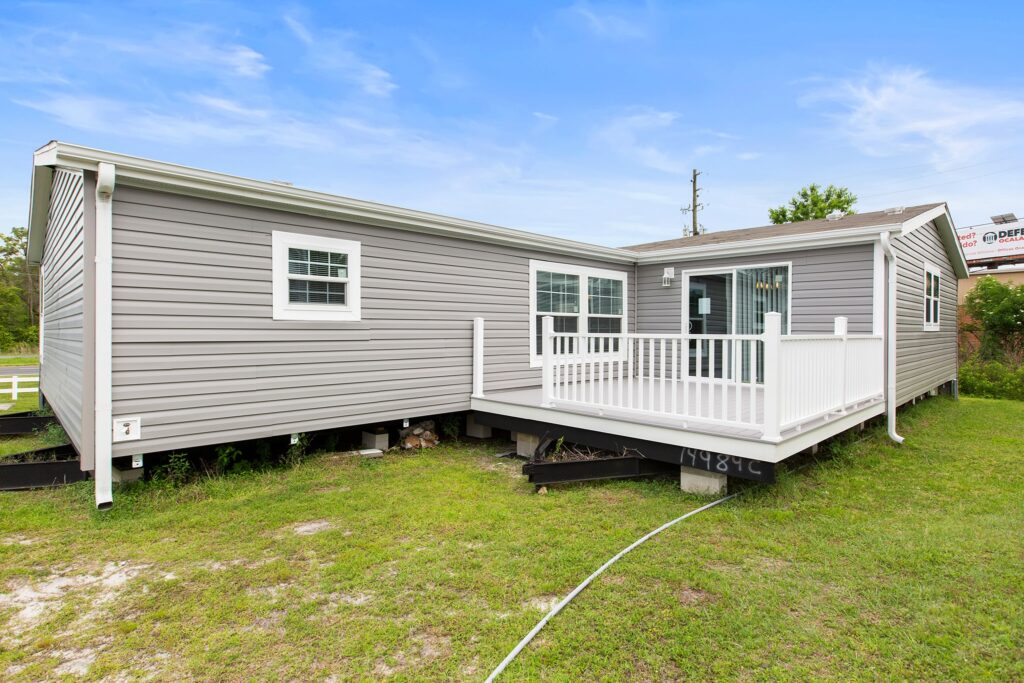Investing in real estate is a time-honored strategy for building wealth, and within this sector, mobile homes have garnered significant attention. Mobile homes, also known as manufactured homes, offer a unique investment opportunity that can be both profitable and challenging. This article explores the pros and cons of investing in mobile homes to help you decide if this could be a smart addition to your investment portfolio.
The Appeal of Mobile Home Investments
Affordability
One of the most attractive aspects of mobile home investing is the lower initial cost compared to traditional single-family homes. Mobile homes can be purchased at a fraction of the price, making them accessible to a broader range of investors. This affordability extends to maintenance and repair costs, which are generally lower for mobile homes.
High Demand for Affordable Housing
The demand for affordable housing is on the rise, and mobile homes offer a viable solution for many people. With the increasing cost of homeownership and rent in many parts of the country, mobile homes provide an affordable alternative. This high demand can translate into steady rental income or quick sales for investors.
Attractive Returns
Mobile homes can offer attractive returns on investment (ROI). Because the purchase price is lower, the potential for positive cash flow is higher. Investors can achieve higher yields compared to traditional real estate investments, especially when the mobile home is placed in a desirable location.
Diverse Investment Options
Investors can choose to buy individual mobile homes, invest in mobile home parks, or even develop new mobile home communities. Each option offers different levels of risk and reward, allowing investors to tailor their approach based on their risk tolerance and investment goals.
The Challenges of Mobile Home Investments
Depreciation
Unlike traditional homes, which generally appreciate over time, mobile homes can depreciate. This depreciation can impact the long-term value of the investment. However, the land on which a mobile home sits can appreciate, potentially offsetting the depreciation of the structure itself.
Financing Difficulties
Securing financing for mobile home investments can be more challenging than for traditional properties. Many lenders are hesitant to finance mobile homes, particularly older models, which can limit an investor’s ability to leverage their investment.
Tenant Turnover and Management
Mobile home parks can experience higher tenant turnover rates, which can lead to increased management and maintenance responsibilities. Effective management is crucial to maintaining profitability, and investors must be prepared to address issues promptly to ensure tenant satisfaction and retention.
Zoning and Regulatory Hurdles
Mobile home investments are subject to zoning laws and regulations that vary significantly by location. Navigating these regulations can be complex and time-consuming, potentially delaying investment plans or increasing costs.
Key Considerations for Prospective Investors
Before diving into mobile home investments, consider the following:
Location: The location of a mobile home or mobile home park significantly impacts its profitability.
Areas with high demand for affordable housing and low vacancy rates are ideal.
Market Research: Conduct thorough market research to understand local trends, demand, and competition. This research will inform your investment strategy and help you make data-driven decisions.
Due Diligence: Inspect mobile homes thoroughly before purchasing. Assess the condition of the home and the land, and review any existing leases or rental agreements.
Exit Strategy: Have a clear exit strategy in place. Whether you plan to sell, rent, or redevelop, knowing your end goal will guide your investment decisions.
Investing in mobile homes can be a smart move for those seeking affordable entry points into real estate with the potential for high returns. However, it comes with its own set of challenges, including depreciation, financing difficulties, and management responsibilities. By conducting thorough research, understanding the local market, and carefully considering the pros and cons, investors can make informed decisions and potentially reap significant rewards from this unique investment opportunity.
Whether you’re a seasoned real estate investor or a newcomer looking to diversify your portfolio, mobile homes offer a compelling option worth exploring.
Success Stories and Case Studies
To provide a more comprehensive understanding, let’s delve into some real-world examples of successful mobile home investments. These case studies highlight the potential profitability and the strategic approaches employed by savvy investors.
Case Study 1: Turning Around a Troubled Mobile Home Park
A group of investors purchased a distressed mobile home park in a growing suburban area. The park had a high vacancy rate, numerous maintenance issues, and a poor reputation. The investors implemented a strategic plan that included:
Renovating Existing Homes: They invested in upgrading the existing mobile homes, improving living conditions and attracting new tenants.
Marketing Campaign: A targeted marketing campaign highlighted the park’s improvements and affordable living options, attracting a steady stream of inquiries.
Community Building: The investors organized community events to foster a sense of belonging among residents, which helped reduce turnover and build a positive reputation.
Within two years, the park’s occupancy rate increased from 50% to 95%, and the monthly rental income more than doubled. The improved cash flow and park valuation resulted in significant returns for the investors.
Case Study 2: Investing in Individual Mobile Homes
An individual investor focused on purchasing used mobile homes in a coastal city with high living costs. By targeting homes that needed minor repairs and were located in desirable mobile home parks, the investor was able to:
Negotiate Purchase Prices: By buying homes that required some work, the investor could negotiate lower purchase prices.
Quick Renovations: Conducting quick and cost-effective renovations made the homes attractive to potential renters or buyers.
Flexible Leasing Options: Offering flexible leasing options, including rent-to-own agreements, appealed to a broader range of tenants.
This approach resulted in high occupancy rates and consistent rental income. The investor achieved a healthy ROI and built a portfolio of income-generating properties.
Future Trends in Mobile Home Investments
As we look to the future, several trends are likely to shape the mobile home investment landscape:
Sustainable and Eco-Friendly Homes
There is a growing demand for sustainable and eco-friendly living options. Mobile home manufacturers are increasingly incorporating green technologies and materials, making these homes more appealing to environmentally conscious consumers.
Technological Advancements
Advancements in manufacturing and construction technology are improving the quality and design of mobile homes. These improvements can lead to higher demand and potentially better investment returns.
Government Policies and Incentives
Government initiatives aimed at increasing affordable housing supply can positively impact the mobile home market. Investors should stay informed about local and national policies that could create new opportunities or provide financial incentives for mobile home investments.
Increased Professional Management
The trend towards professional management of mobile home parks is growing. Professional management companies can handle day-to-day operations, marketing, and tenant relations, making it easier for investors to maintain profitability and focus on scaling their portfolios.
Investing in mobile homes presents a unique opportunity to enter the real estate market at a lower cost while potentially reaping high returns. The key to success lies in thorough research, careful planning, and effective management. While there are challenges to consider, the potential rewards can make it a smart investment choice for those willing to navigate the complexities of this market.
Whether you are interested in individual mobile homes or larger mobile home park investments, staying informed about market trends and best practices will enhance your chances of success. As with any investment, due diligence, a clear strategy, and adaptability are essential to making mobile home investments a profitable and smart addition to your real estate portfolio.







